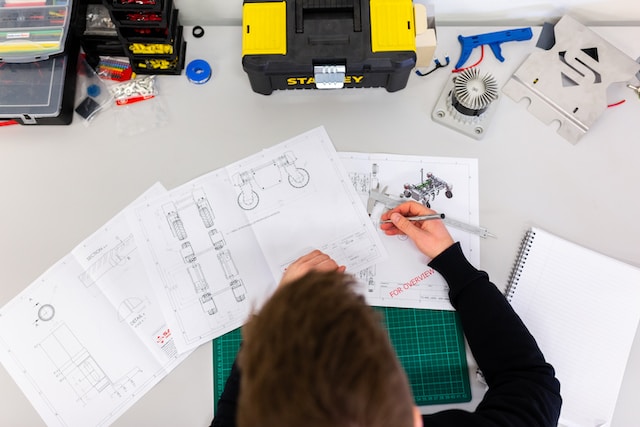AI voice assistants are active on 97% of all mobile devices, so it’s safe to assume that artificial intelligence is now the technology of today.
As an engineer, it’s essential for you to understand the best ways to use AI and how this technology can help change your entire industry.
Here are four ways that artificial intelligence will likely influence engineering over the next few years.
1. Insights from a Different Perspective
AI platforms like ChatGPT have been trained using more than 1 trillion different parameters, which allows this type of AI tool to provide a fresh perspective on all areas.
This means that AI tools can give you a fresh perspective and help you select the best materials and analyze internal data.
2. Faster Simulations and Analyses
According to IBM, AI can make simulations 10 to 100 times faster than conventional platforms.
In other words, you get to learn more about your data in a shorter period of time and with less computing.
3. Enhanced Exploration of Designs
One of the best benefits of AI in engineering is the enhancement of design exploration.
Simply put, AI can help perform exploration and optimization studies in a shorter time than with conventional testing models.
This results in faster identification of viable designs, ultimately leading to higher productivity.
4. Little to No Data Waste
For decades, we’ve been able to collect a huge amount of data. But, processing, analyzing, and transforming all this data into actions required a huge amount of human input.
Today, AI platforms can do the heavy lifting in data analysis and provide suggestions and alternatives that consider every single piece of data.
And the best part is that all this happens in a fraction of what it used to take.
Best AI Tools for Engineers
Let’s take a closer look at some of the current AI tools already changing the engineering field.
ChatGPT and Bard
ChatGPT and Bard are two AI assistants created by OpenAI and Google, respectively.
Both of these are already online and accessible, so you can use these to help you write messages, conduct research, and complete other mundane yet necessary tasks.
Keep in mind that Bard and ChatGPT are not available in all regions, but you may still be able to use an encrypted connection to test these out. In case you run into this, you can click here to try VPN.

Siri and Other Assistants
Siri, Cortana, and Bixby are just some of the AI voice assistants that can help you schedule calls, send emails, and control applications within your smartphone and laptop.
This is extremely useful as this administrative side is among the most burdensome for many engineers.
Technical In-House Systems
In addition to out-of-the-box platforms, it’s also possible for your engineering firm to leverage custom AI tools.
Tailored software infused with artificial intelligence can help automate tasks across many different departments, not just the administrative side.
Here are some areas where AI will change engineering in the near future.
- Resource Management: engineering firms need to administer both physical and digital assets, a process that can be enhanced with AI tools.
- Design Testing: faster simulation and design exploration bolster the testing process, all of which is possible thanks to artificial intelligence.
- Operations: whether it’s for delivery and logistics, supply chain, or other areas, AI can boost your engineering firm across several areas.
To Wrap Up
There is no doubt that artificial intelligence tools will change many industries and engineering is no exception.
As an engineer, it’s important for you to stay tuned with the evolution of AI and the advancements it brings.
This includes insights from a different perspective, faster simulations, a plethora of new designs, and the ability to leverage data like never before.







